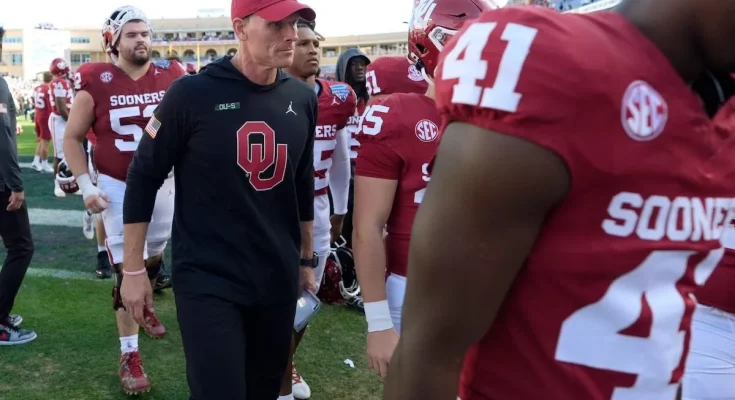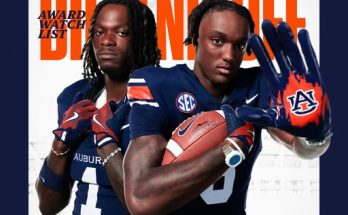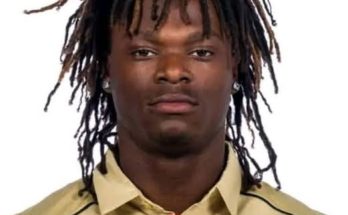Few programs in college football history command the reverence and historical weight of the Oklahoma Sooners. From Bud Wilkinson’s dominance in the 1950s to Barry Switzer’s wishbone dynasty and Bob Stoops’ 2000s revival, Oklahoma has long been a program where greatness is not hoped for—it’s expected. But since Lincoln Riley’s stunning departure to USC and a transition period marked by growing pains, uncertainty has hovered over Norman like a stubborn gray cloud. Enter Brent Venables, a defensive mastermind who once prowled the sidelines at Oklahoma as an assistant coach under Stoops before building Clemson’s defense into a national powerhouse. Now back as head coach, Venables is attempting something few are bold enough to try in the current college football landscape: transforming a sleeping giant through grit, culture, and vision, rather than simply chasing the transfer portal’s shiny objects. The question lingers—can he truly turn Oklahoma’s resurgent spark into championship gold and restore the Sooners’ glory days?
Venables didn’t take over a stable situation. When Riley left for the West Coast, he took with him a chunk of the recruiting class, an elite quarterback, and the aura of offensive innovation that had defined Oklahoma for half a decade. The Sooners, once among the nation’s most feared offenses, suddenly found themselves scrambling for answers in a new era of NIL, rapid realignment, and shifting priorities. Venables arrived not just to steady the ship but to rebuild its very foundation. His vision wasn’t just about winning games—it was about instilling values, accountability, and toughness. For a program used to flash, Venables brought fundamentals. For a fanbase expecting instant fireworks, he offered slow-burning fire.
The first season under Venables was rocky, a 6-7 campaign that raised eyebrows and invited criticism. Pundits questioned whether a longtime defensive coordinator could handle the massive responsibilities of being a head coach at one of college football’s most demanding programs. But Venables didn’t flinch. He acknowledged the failures, owned the mistakes, and refused to sugarcoat the rebuilding process. That honesty, in an age where coaches often spin narratives more than they develop players, stood out. It also earned him trust in the locker room and among alumni. Even in the midst of disappointing losses, there were signs of growth—gritty performances, young players stepping up, and a sense of cohesion that hinted at better days ahead.
By year two, those hints became more tangible. The team looked sharper, more focused, and significantly more competitive. The Sooners began to regain their physical identity on defense—a Venables hallmark—and their offense, while still not the high-octane machine it once was, showed promise under the guidance of Jeff Lebby. Recruiting started to pick up steam again, not just in skill positions but in the trenches, where championships are won and lost. Perhaps more importantly, Oklahoma began to develop a core of leaders who had fully bought into Venables’ vision. They weren’t just playing for wins; they were playing for the program’s soul.
What separates Venables from many of his peers is his unwavering belief in the power of culture. In an era where the transfer portal and NIL have introduced chaos and short-term thinking into college football, Venables has doubled down on development and accountability. His approach is less transactional and more transformational. He doesn’t just want to win games—he wants to mold young men into champions on and off the field. That kind of vision takes time, patience, and faith—commodities in short supply when the boosters want wins and rivals are stockpiling five-stars like trading cards. Yet it’s precisely that long-view approach that might set Oklahoma apart in the coming years.
The move to the SEC looms large over everything Oklahoma does now. No longer will nine or ten wins against Big 12 competition suffice. The Sooners will be facing Alabama, Georgia, LSU, and Tennessee—programs that eat rebuilds for breakfast. It’s easy to see why some question whether Venables can make the leap from respectable to elite in such a brutal gauntlet. But those who know Venables understand that his entire career has prepared him for this. He learned from Bill Snyder at Kansas State, forged his reputation under Stoops, and then helped Clemson climb from good to generational. He knows what elite looks like because he’s helped build it. He understands that surviving the SEC isn’t about gimmicks—it’s about depth, discipline, and doing the little things better than the guy across from you.
There are already signs that Venables is putting the right pieces in place. His recruiting classes have started to reflect a national reach, pulling top talent not just from Oklahoma and Texas but from Florida, California, and beyond. The defensive line, long a sore spot for the Sooners, is becoming a position of strength. Linebackers are fast, physical, and smart—reflecting their coach’s DNA. The secondary is growing more confident and technically sound. On offense, the identity is still forming, but the foundation is more balanced than in recent years, with a greater emphasis on the run game and ball control. In short, Oklahoma is becoming a more complete team—not just a highlight-reel offense with a paper-thin defense.
Still, there are hurdles. The SEC transition will come with its share of painful lessons. The pressure to keep up in the NIL arms race will test the program’s infrastructure and donor base. The media scrutiny will intensify, especially if early losses pile up. But Venables seems unfazed by the noise. He speaks often about the importance of faith, family, and focus. He doesn’t engage in social media warfare or chase headlines. He’s building something brick by brick, knowing full well that empires aren’t built overnight. It’s a refreshing approach in a sport that often prizes style over substance.
The fans, for their part, appear ready to ride this wave. Sooner Nation, famously passionate and demanding, has shown remarkable patience so far. They understand what’s at stake. They know that for Oklahoma to succeed in the SEC, it can’t just be good—it must be elite. And they seem to believe that Venables, despite the early bumps, has the resolve and intelligence to get them there. His transparency has forged a stronger bond between coach and community. He’s not promising miracles—he’s promising a fight.
If Oklahoma does return to the pinnacle of college football in the coming years, it won’t be because of flash or gimmicks. It’ll be because Brent Venables stayed true to his blueprint. It’ll be because he recruited the right players, not just the highest-rated ones. It’ll be because he built a culture where effort is praised, mistakes are owned, and accountability is more than just a buzzword. It’ll be because he turned setbacks into lessons and pressure into purpose. And if he does succeed—if Oklahoma once again lifts a national championship trophy—it will be one of the most satisfying rebuilds in college football history.
The legacy of Oklahoma football is not just about wins and Heismans. It’s about identity—toughness, pride, tradition, and unity. Brent Venables understands that better than most. He lived it as an assistant. He’s fighting to revive it as a head coach. The road ahead is steep, but for a man forged in fire and faith, the climb is part of the reward. Oklahoma’s spark is real. Now it’s up to Venables to turn it into gold.



